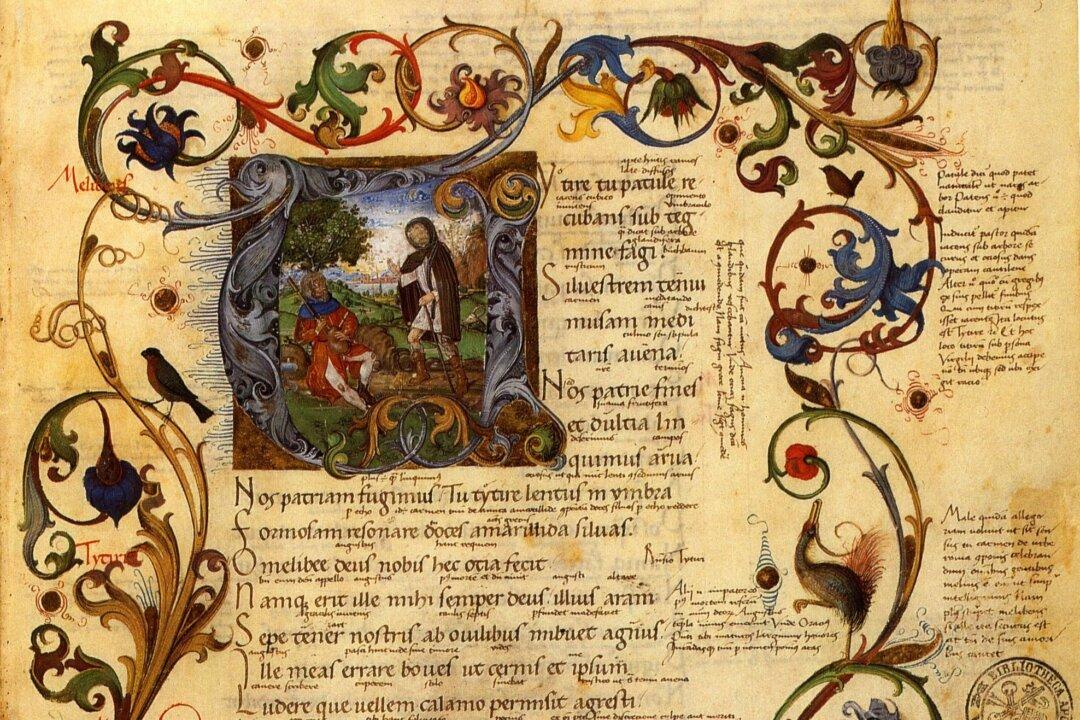The Roman poet Virgil (70 B.C.–19 B.C.) is best known for writing the epic poem “The Aeneid,” but he also wrote a series of pastoral and political poems called “The Eclogues” (sometimes “The Bucolics”). The poems sing mostly of idyllic rural life among the burnished fields, flower-speckled meadows, and winding orchards, with the occasional intrusion of the political discord that was occurring at the end of the first century B.C.
“The Eclogues,” a term meaning “selections,” feature mostly herdsmen, speaking to one another and engaging in songs that echo through the countryside. The songs sometimes deal with the confiscation of their land due to the political upheaval of the time.






